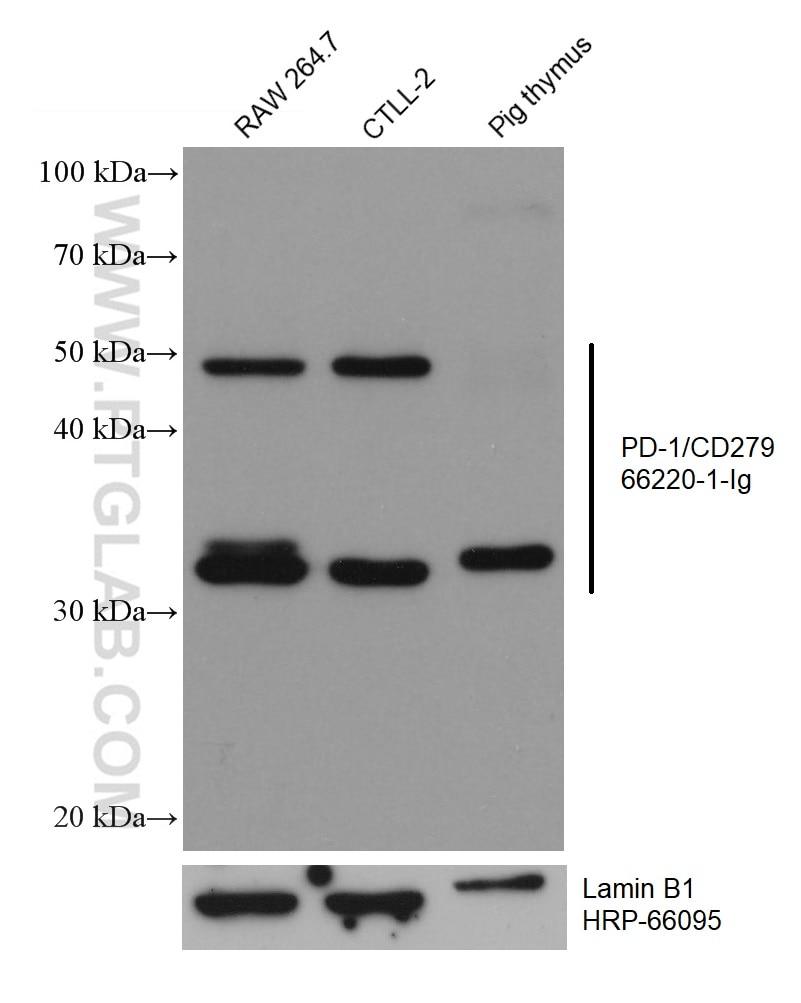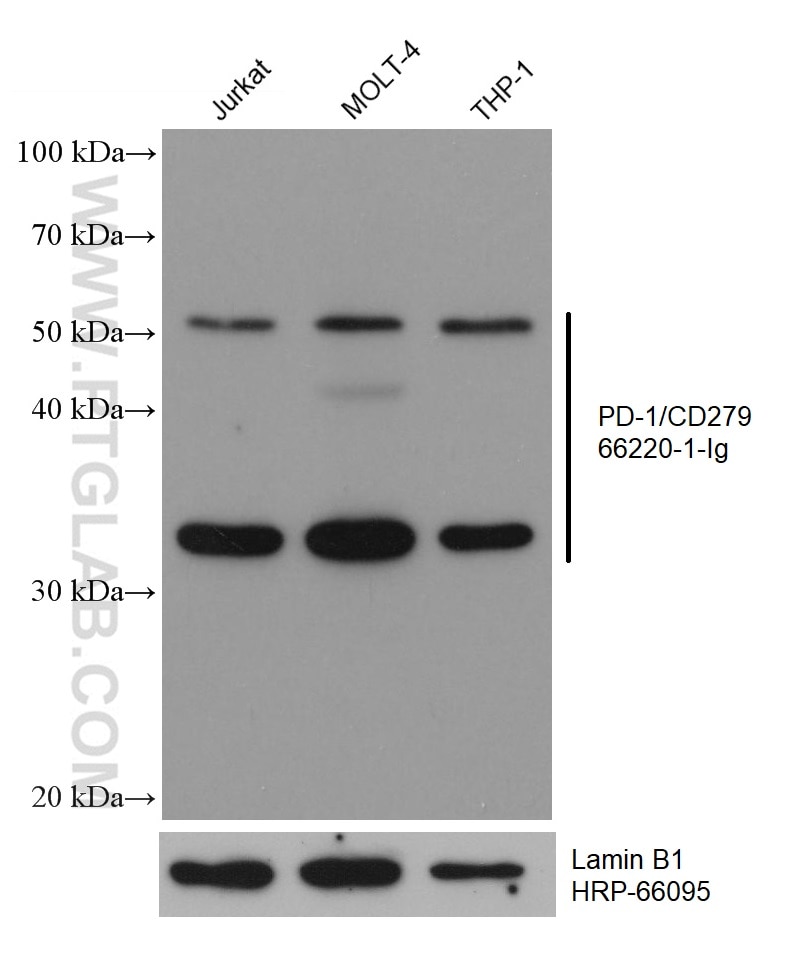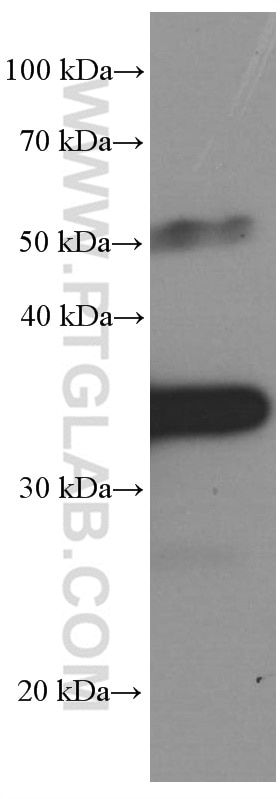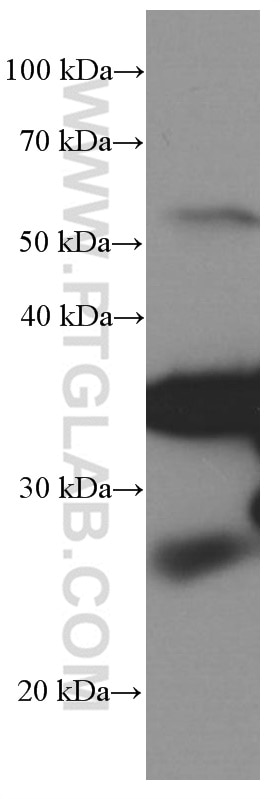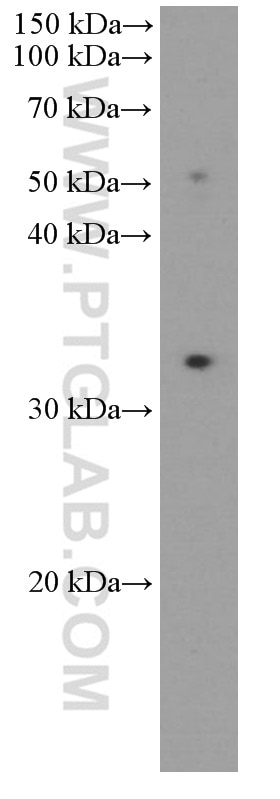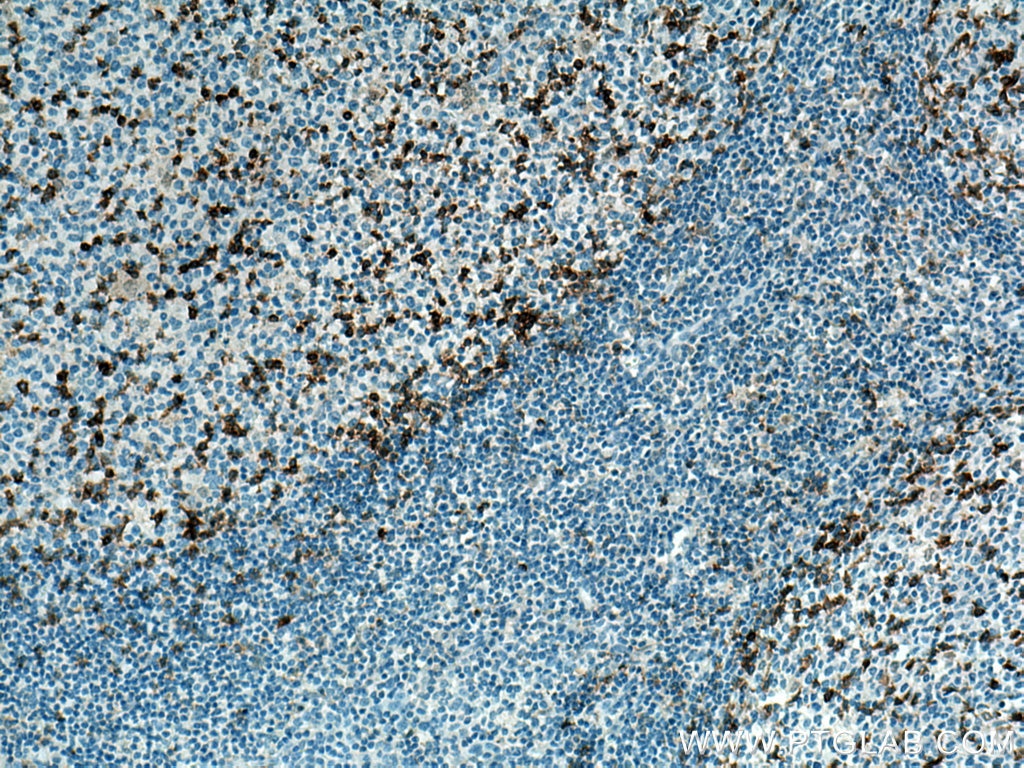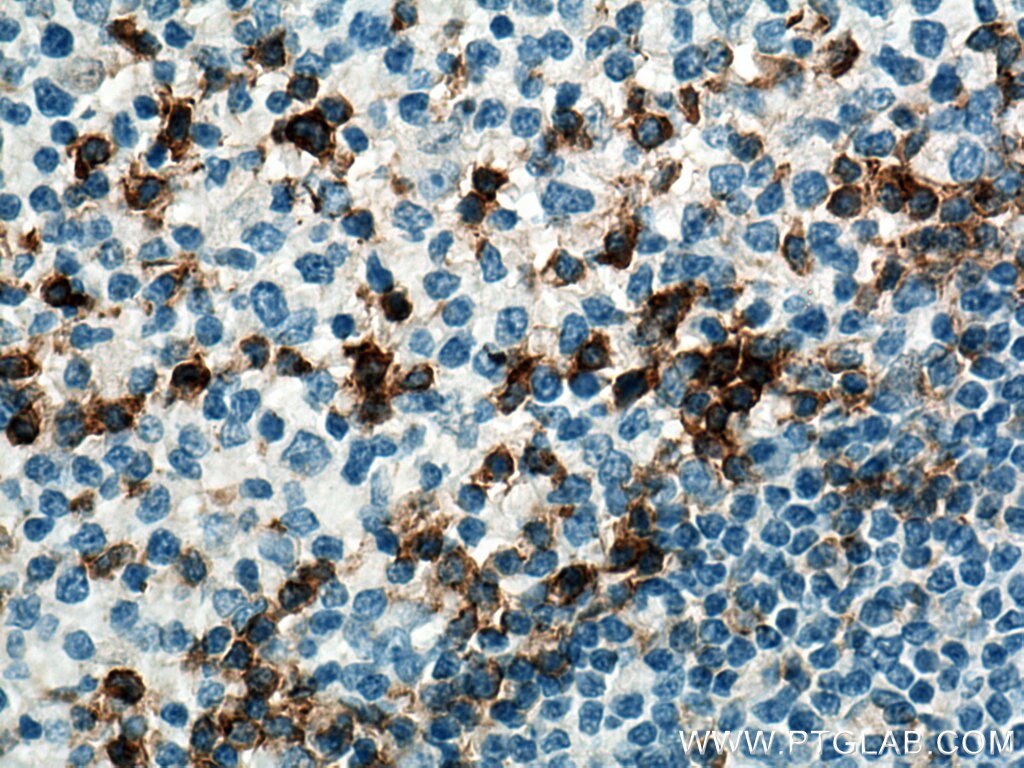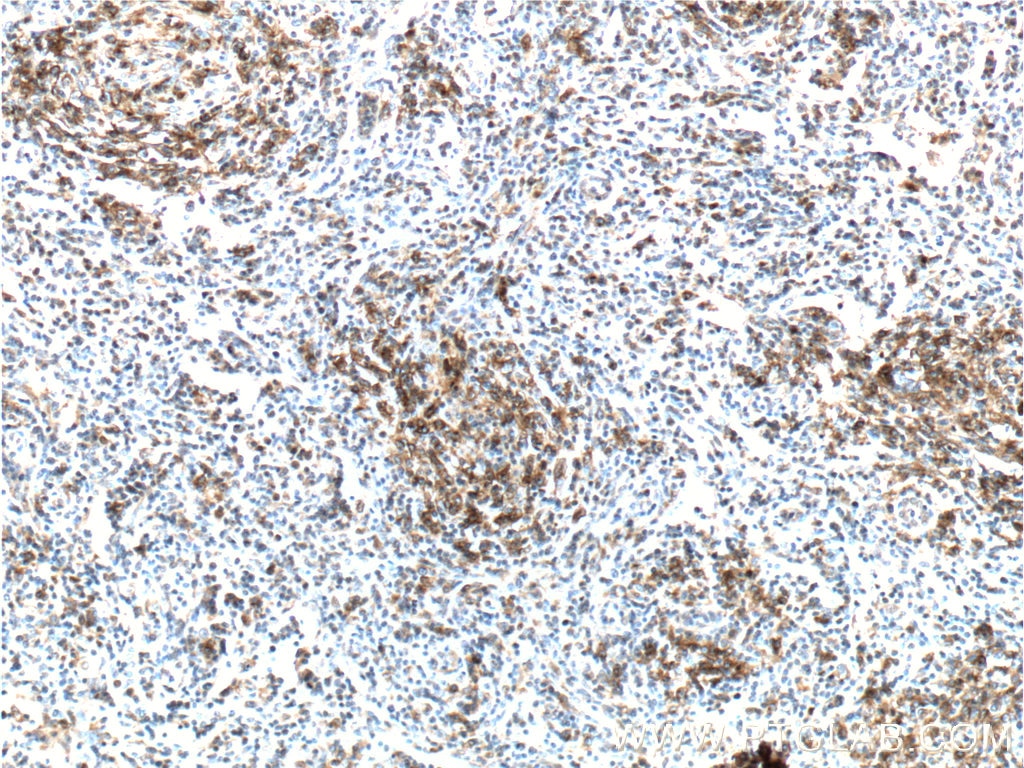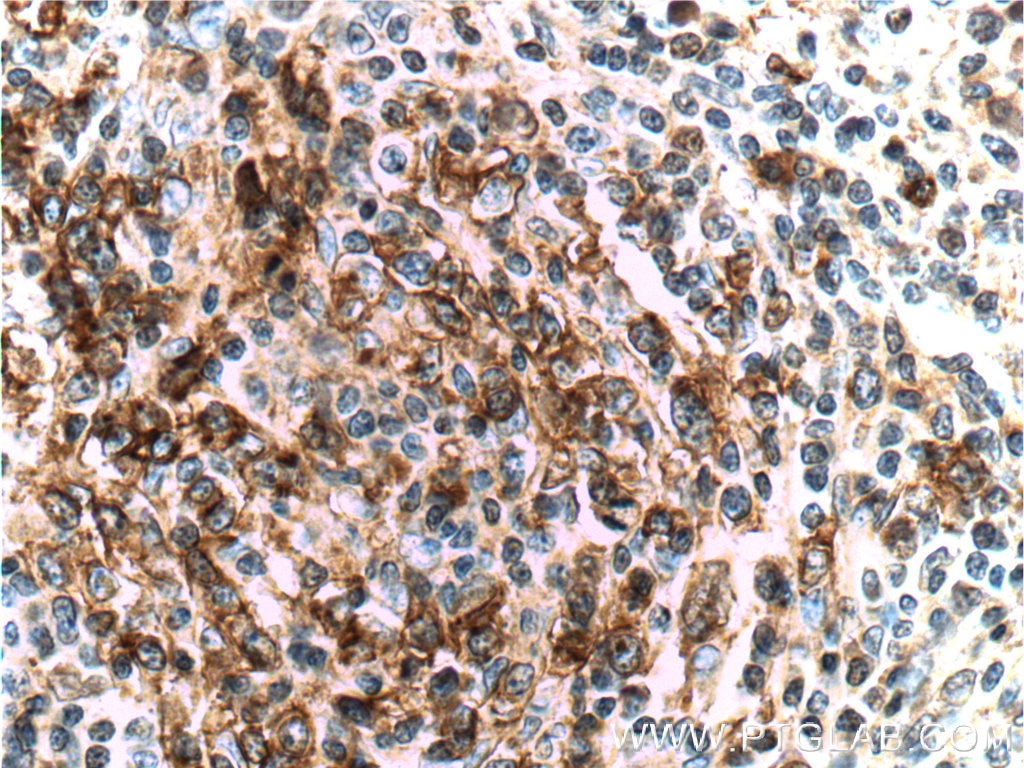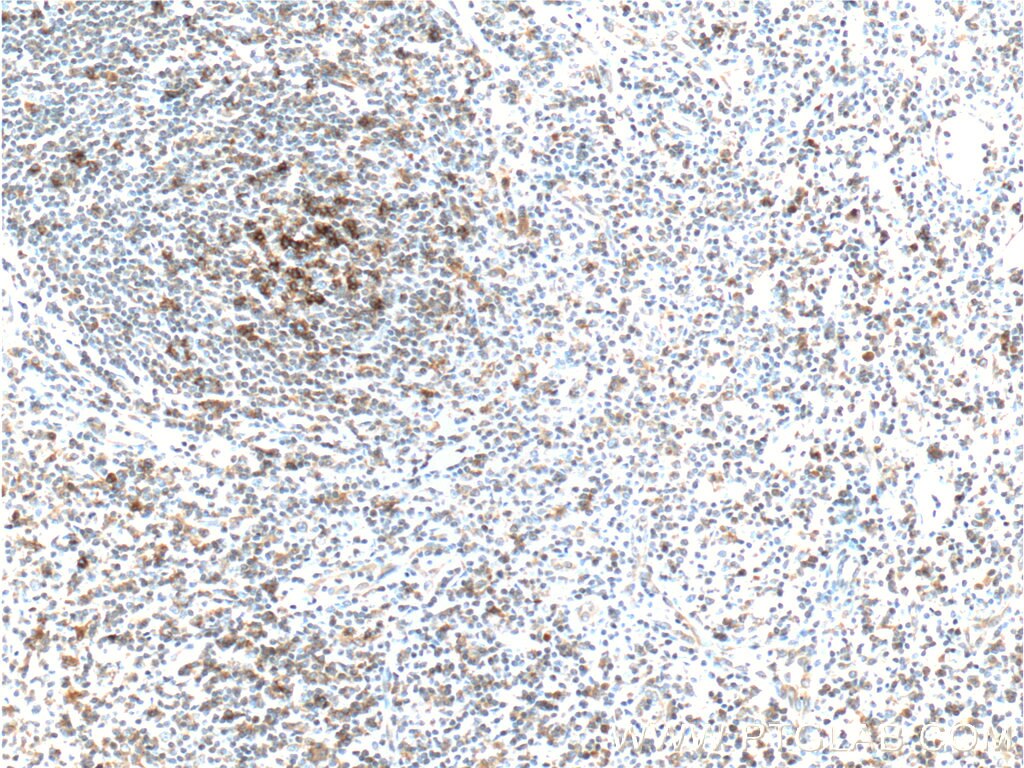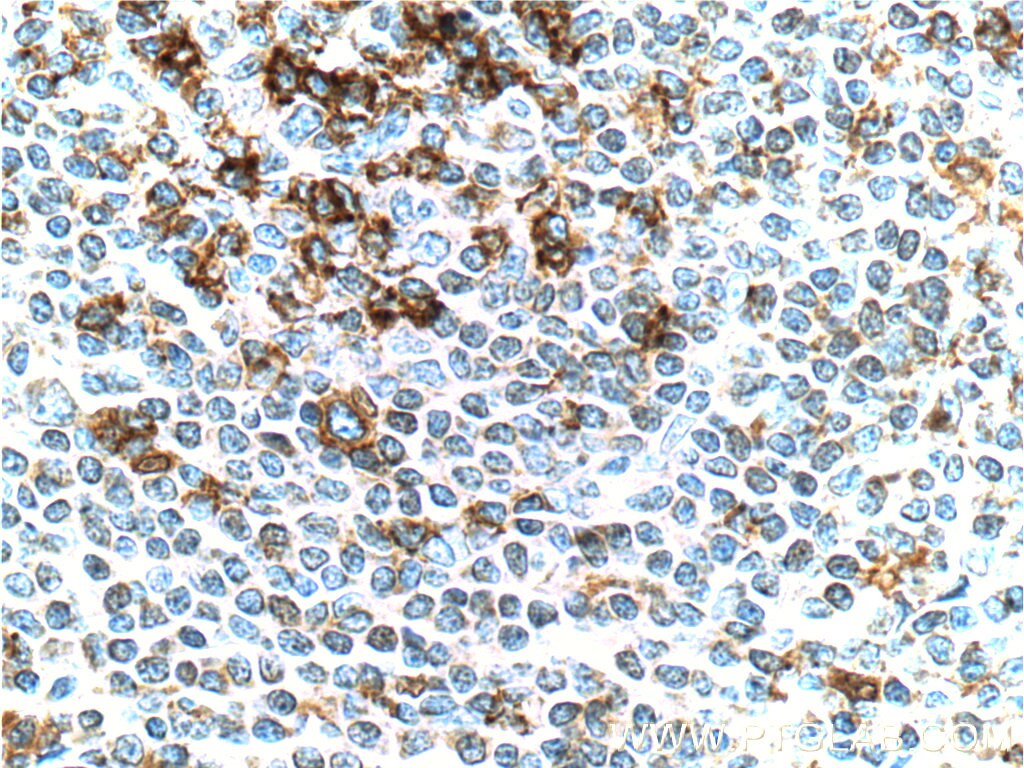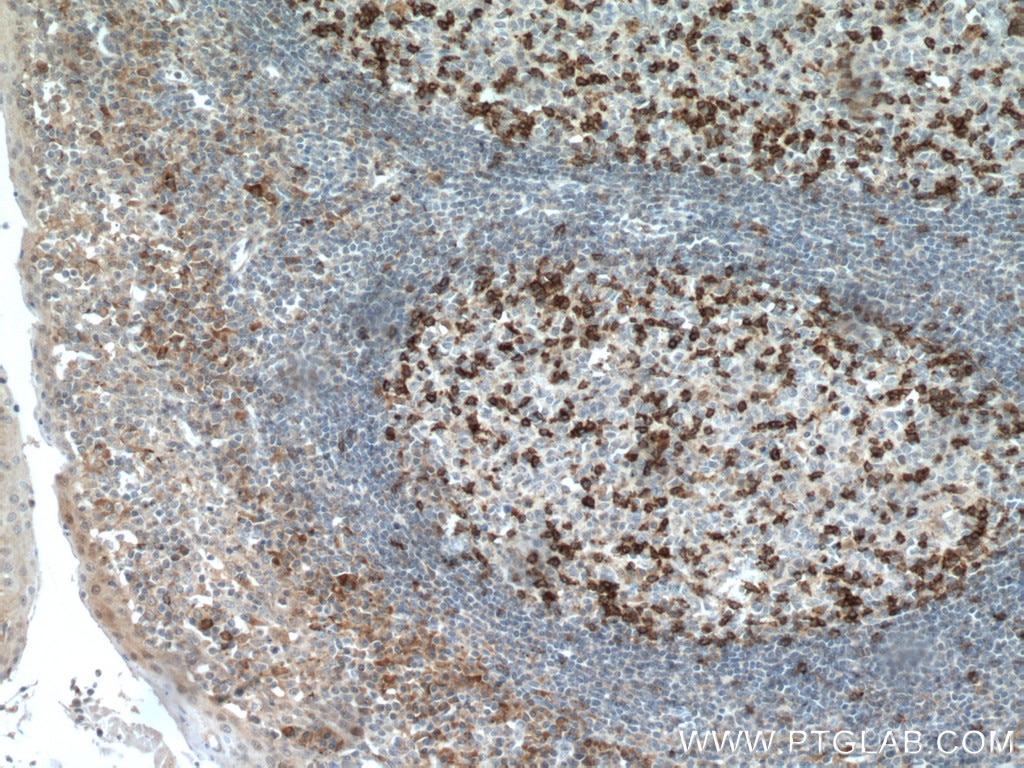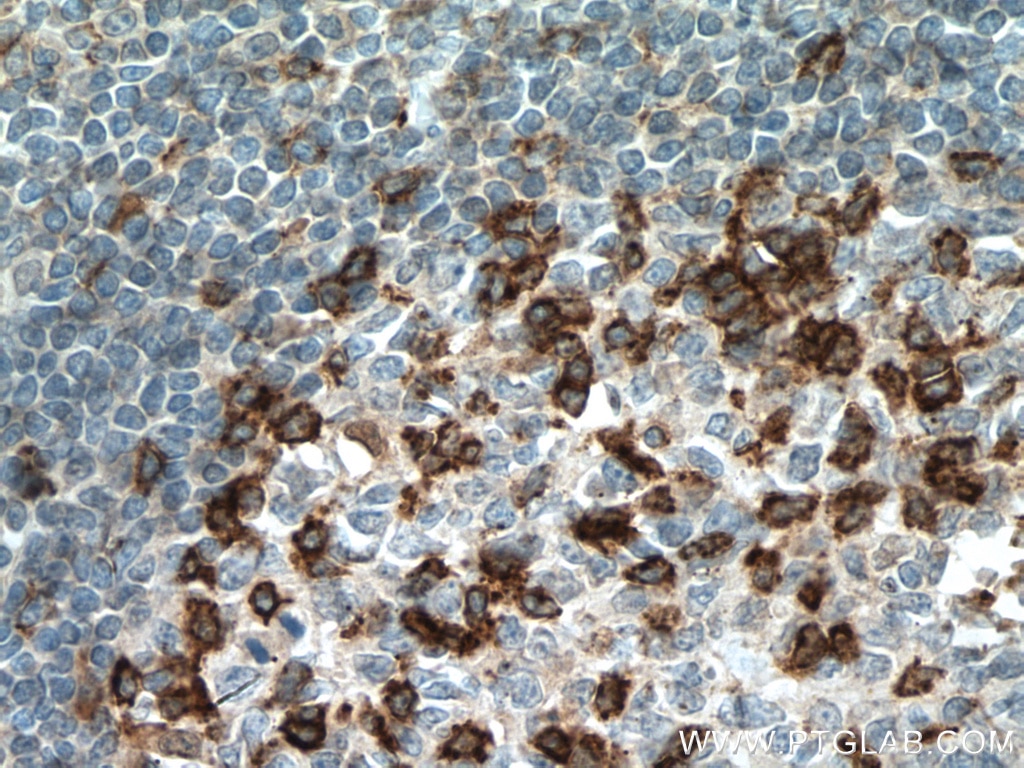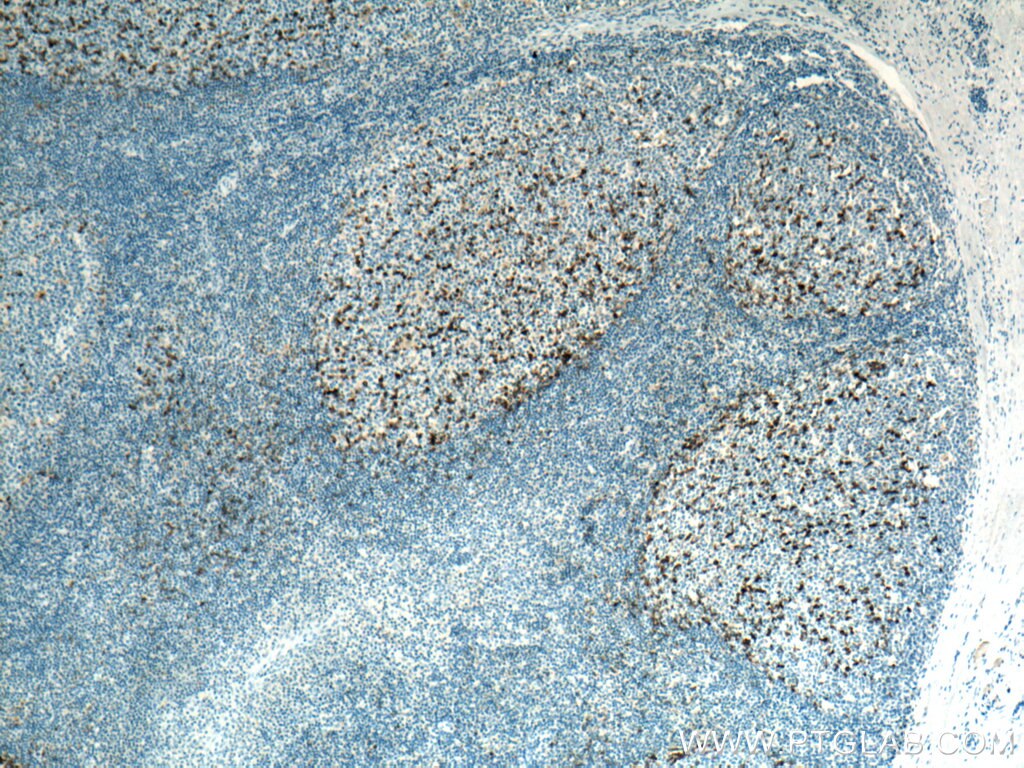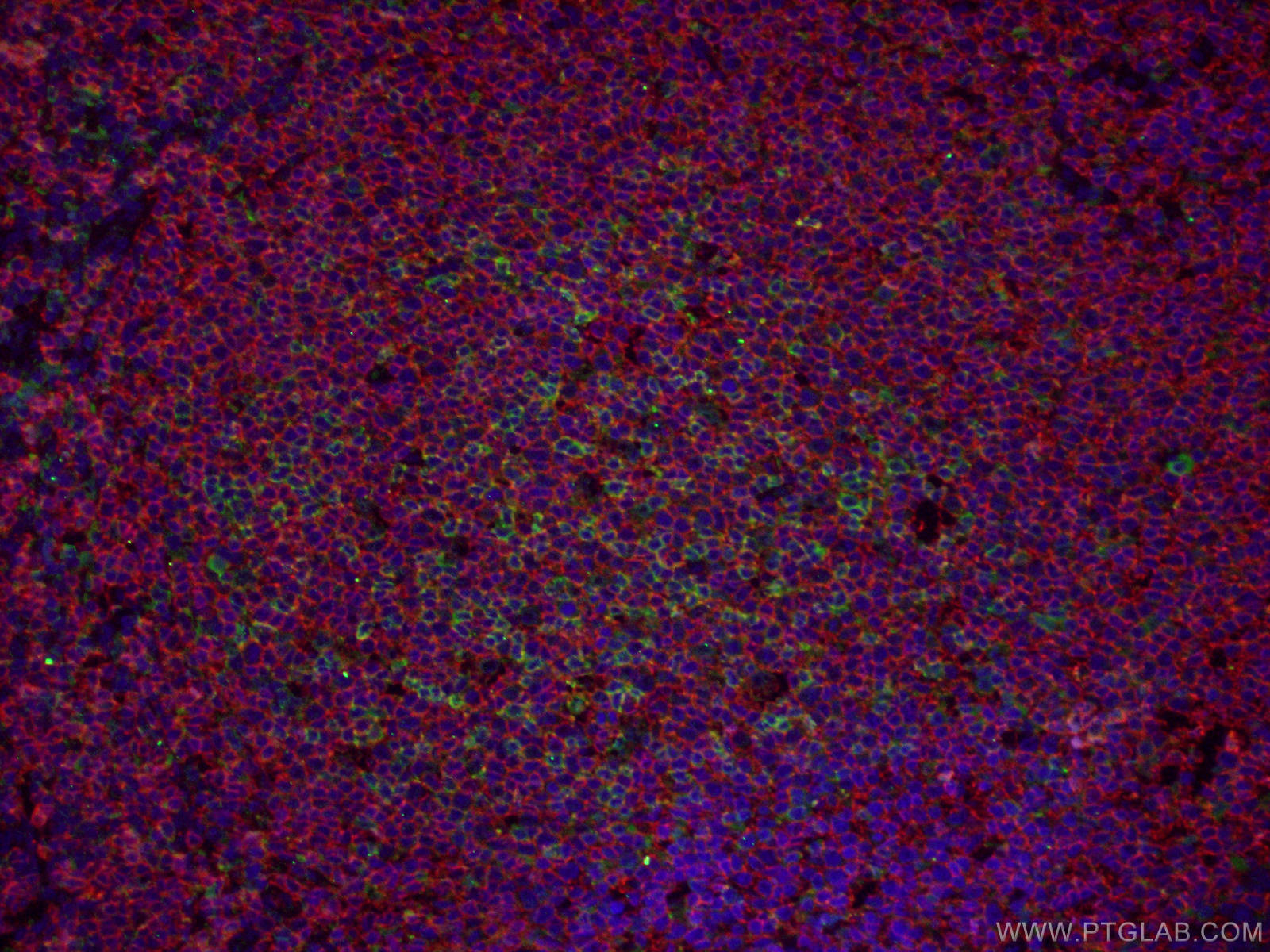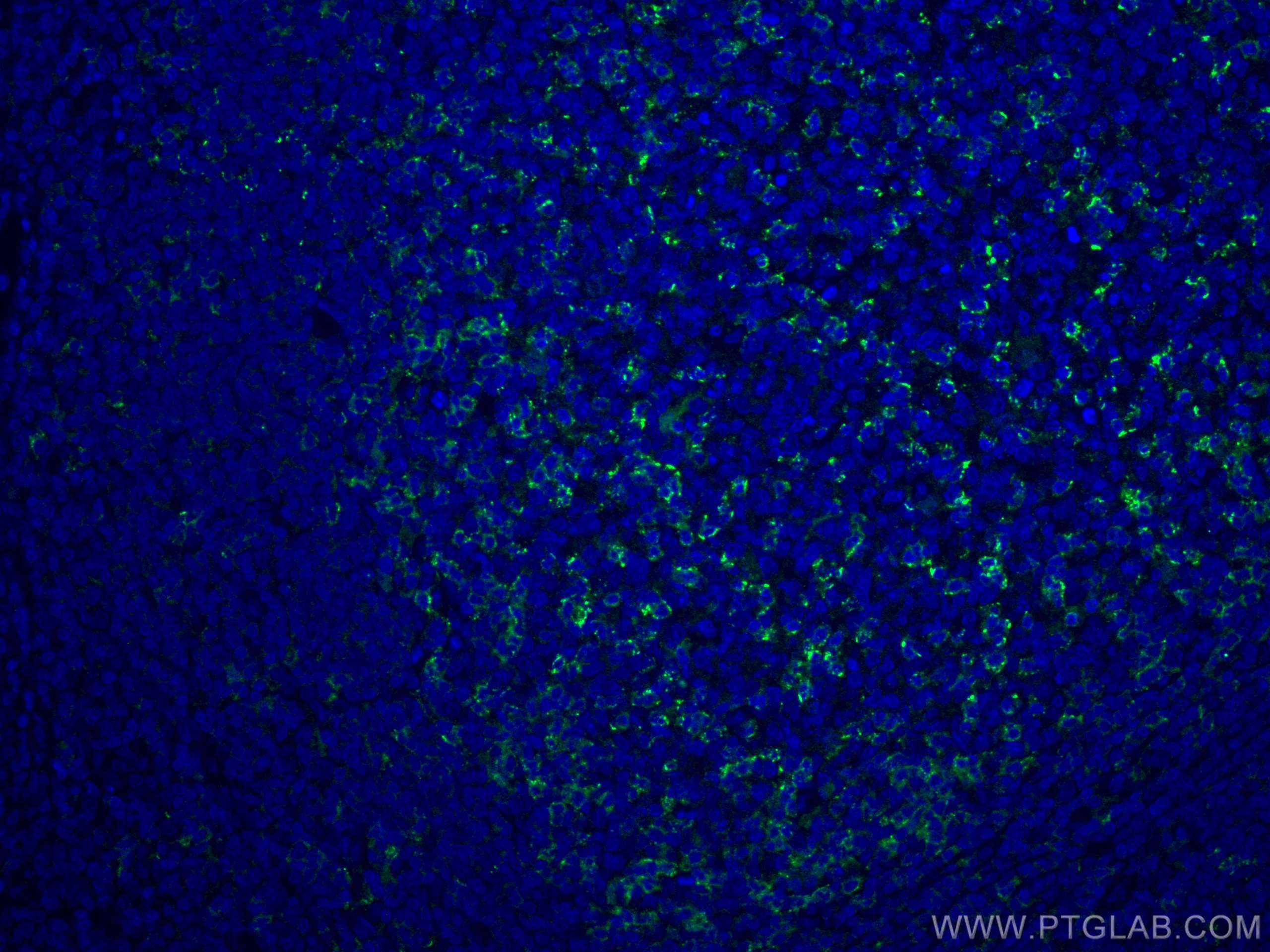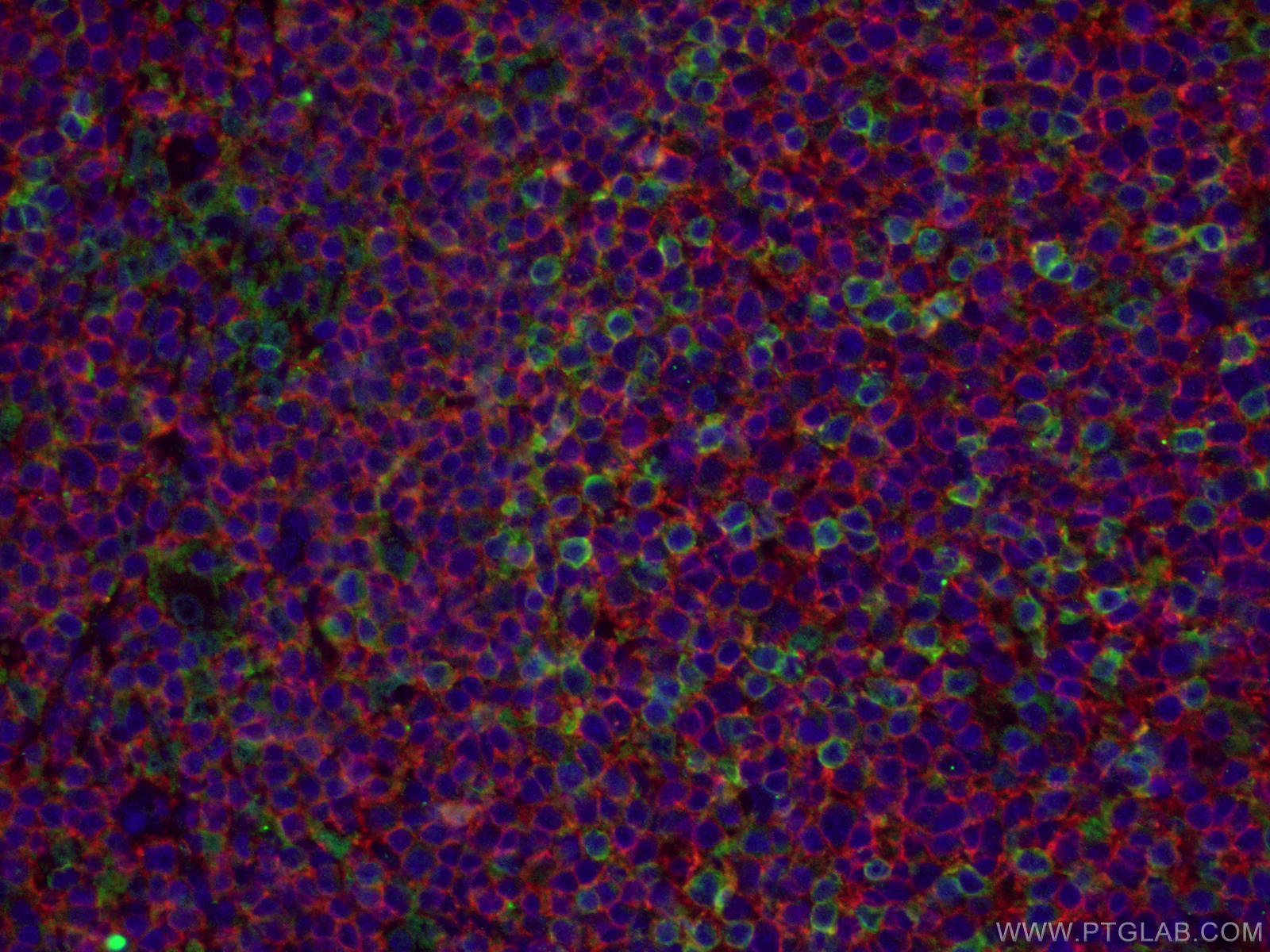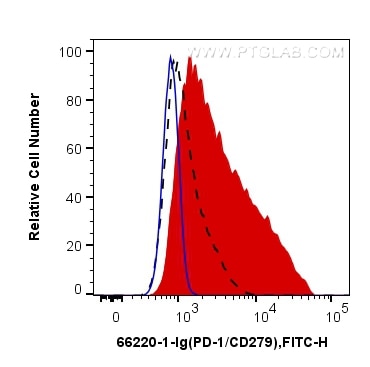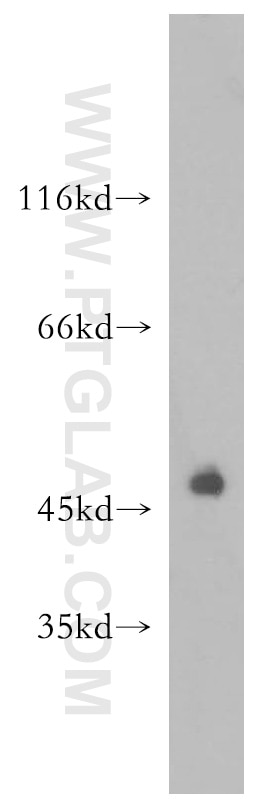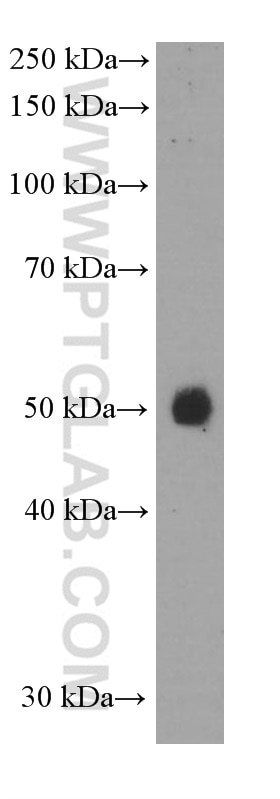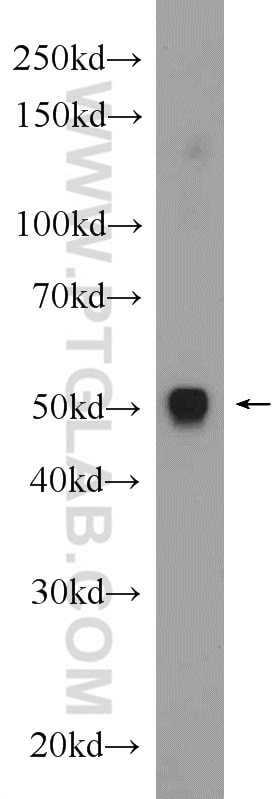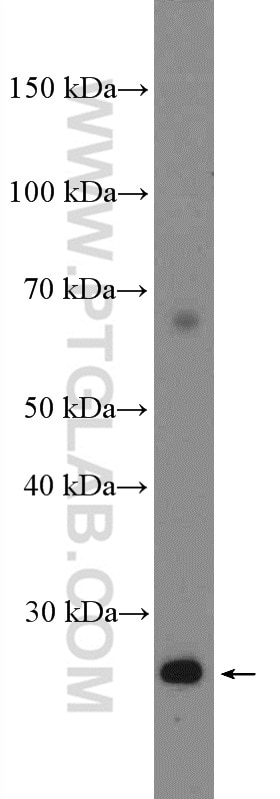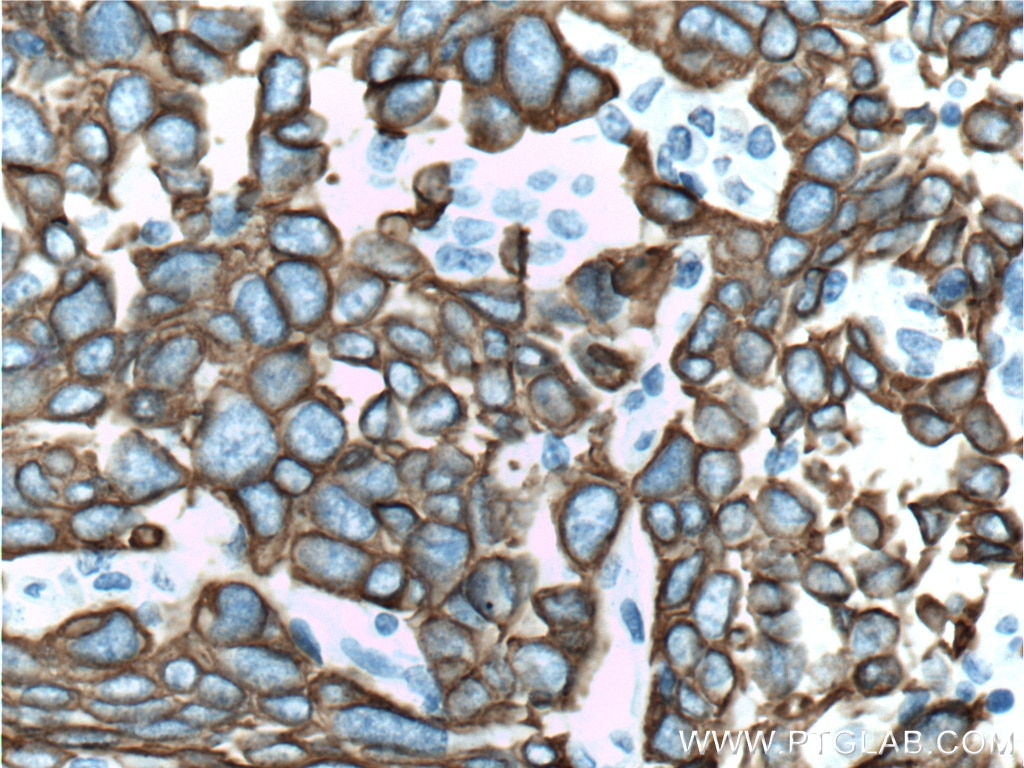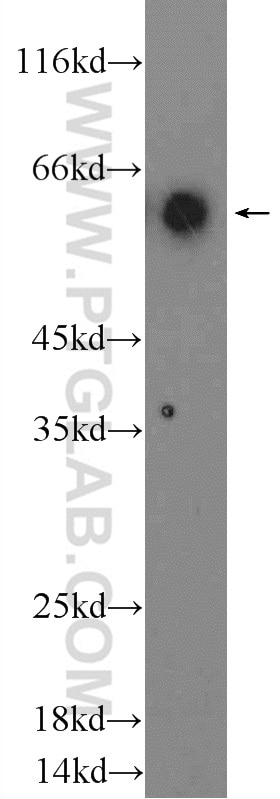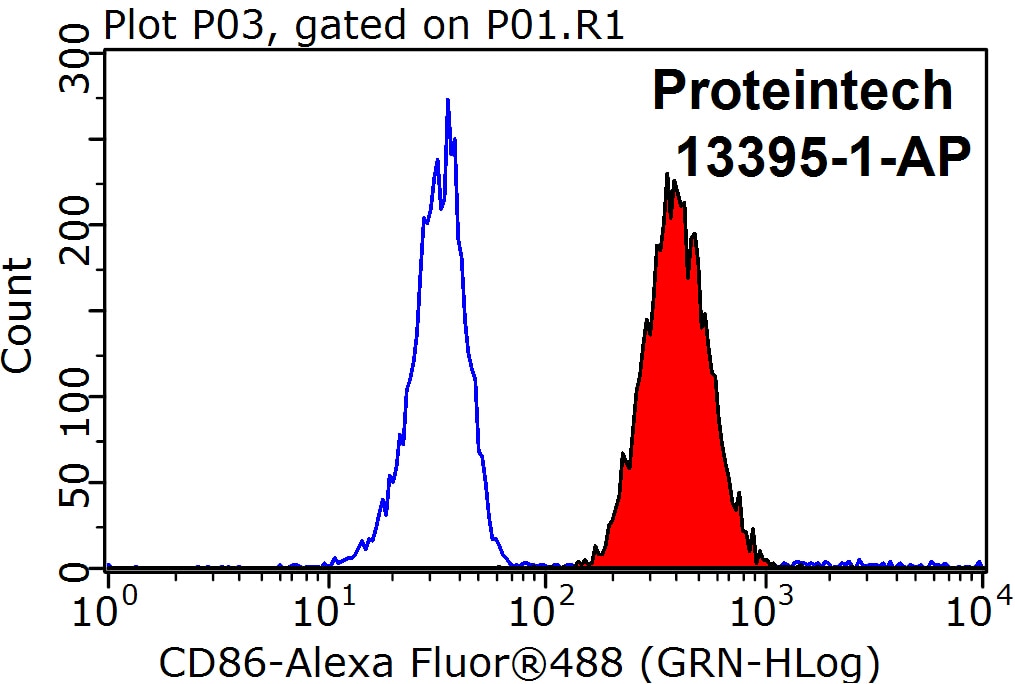PD-1/CD279 Monoklonaler Antikörper
PD-1/CD279 Monoklonal Antikörper für FC, IF, IHC, WB, ELISA
Wirt / Isotyp
Maus / IgG2b
Getestete Reaktivität
Hausschwein, human, Maus, Ratte
Anwendung
WB, IHC, IF, FC, ELISA
Konjugation
Unkonjugiert
CloneNo.
4H4D1
Kat-Nr. : 66220-1-Ig
Synonyme
Galerie der Validierungsdaten
Geprüfte Anwendungen
| Erfolgreiche Detektion in WB | RAW 264.7-Zellen, Hausschwein-Thymusgewebe, humanes Lymphknotengewebe, Jurkat-Zellen, Maus-Thymusgewebe, MOLT-4-Zellen, Rattenmilzgewebe, THP-1-Zellen |
| Erfolgreiche Detektion in IHC | humanes Tonsillitisgewebe, humanes Lymphomgewebe Hinweis: Antigendemaskierung mit TE-Puffer pH 9,0 empfohlen. (*) Wahlweise kann die Antigendemaskierung auch mit Citratpuffer pH 6,0 erfolgen. |
| Erfolgreiche Detektion in IF | humanes Tonsillitisgewebe |
| Erfolgreiche Detektion in FC | PMA and ionomycin treated MOLT-4 cells |
Empfohlene Verdünnung
| Anwendung | Verdünnung |
|---|---|
| Western Blot (WB) | WB : 1:5000-1:50000 |
| Immunhistochemie (IHC) | IHC : 1:2000-1:8000 |
| Immunfluoreszenz (IF) | IF : 1:200-1:800 |
| Durchflusszytometrie (FC) | FC : 0.20 ug per 10^6 cells in a 100 µl suspension |
| It is recommended that this reagent should be titrated in each testing system to obtain optimal results. | |
| Sample-dependent, check data in validation data gallery | |
Veröffentlichte Anwendungen
| KD/KO | See 2 publications below |
| WB | See 18 publications below |
| IHC | See 10 publications below |
| IF | See 10 publications below |
| FC | See 1 publications below |
Produktinformation
66220-1-Ig bindet in WB, IHC, IF, FC, ELISA PD-1/CD279 und zeigt Reaktivität mit Hausschwein, human, Maus, Ratten
| Getestete Reaktivität | Hausschwein, human, Maus, Ratte |
| In Publikationen genannte Reaktivität | human, Maus, Ratte |
| Wirt / Isotyp | Maus / IgG2b |
| Klonalität | Monoklonal |
| Typ | Antikörper |
| Immunogen | PD-1/CD279 fusion protein Ag12470 |
| Vollständiger Name | programmed cell death 1 |
| Berechnetes Molekulargewicht | 288 aa, 32 kDa |
| Beobachtetes Molekulargewicht | 32 kDa, 47-55 kDa |
| GenBank-Zugangsnummer | BC074740 |
| Gene symbol | PDCD1 |
| Gene ID (NCBI) | 5133 |
| Konjugation | Unkonjugiert |
| Form | Liquid |
| Reinigungsmethode | Protein-A-Reinigung |
| Lagerungspuffer | PBS mit 0.02% Natriumazid und 50% Glycerin pH 7.3. |
| Lagerungsbedingungen | Bei -20°C lagern. Nach dem Versand ein Jahr lang stabil Aliquotieren ist bei -20oC Lagerung nicht notwendig. 20ul Größen enthalten 0,1% BSA. |
Hintergrundinformationen
Programmed cell death 1 (PD-1, also known as CD279) is an immunoinhibitory receptor that belongs to the CD28/CTLA-4 subfamily of the Ig superfamily. It is a 288 amino acid (aa) type I transmembrane protein composed of one Ig superfamily domain, a stalk, a transmembrane domain, and an intracellular domain containing an immunoreceptor tyrosine-based inhibitory motif (ITIM) as well as an immunoreceptor tyrosine-based switch motif (ITSM) (PMID: 18173375). PD-1 is expressed during thymic development and is induced in a variety of hematopoietic cells in the periphery by antigen receptor signaling and cytokines (PMID: 20636820). Engagement of PD-1 by its ligands PD-L1 or PD-L2 transduces a signal that inhibits T-cell proliferation, cytokine production, and cytolytic function (PMID: 19426218). It is critical for the regulation of T cell function during immunity and tolerance. Blockade of PD-1 can overcome immune resistance and also has been shown to have antitumor activity (PMID: 22658127; 23169436). The calculated molecular weight of PD-1 is 32 kDa. It has been reported that PD-1 is heavily glycosylated and migrates with an apparent molecular mass of 47-55 kDa on SDS-PAGE (PMID: 8671665; 17640856; 17003438).
Protokolle
| Produktspezifische Protokolle | |
|---|---|
| WB protocol for PD-1/CD279 antibody 66220-1-Ig | Protokoll herunterladen |
| IHC protocol for PD-1/CD279 antibody 66220-1-Ig | Protokoll herunterladen |
| IF protocol for PD-1/CD279 antibody 66220-1-Ig | Protokoll herunterladen |
| FC protocol for PD-1/CD279 antibody 66220-1-Ig | Protokoll herunterladen |
| Standard-Protokolle | |
|---|---|
| Klicken Sie hier, um unsere Standardprotokolle anzuzeigen |
Publikationen
| Species | Application | Title |
|---|---|---|
Nat Commun ERK and USP5 govern PD-1 homeostasis via deubiquitination to modulate tumor immunotherapy | ||
Nat Commun m6A mRNA demethylase FTO regulates melanoma tumorigenicity and response to anti-PD-1 blockade. | ||
Cancers (Basel) Overcoming PD-1 Inhibitor Resistance with a Monoclonal Antibody to Secreted Frizzled-Related Protein 2 in Metastatic Osteosarcoma. | ||
Biochem Pharmacol Targeting HMGA1 contributes to immunotherapy in aggressive breast cancer while suppressing EMT | ||
Aging (Albany NY) Elevated lymphocyte specific protein 1 expression is involved in the regulation of leukocyte migration and immunosuppressive microenvironment in glioblastoma. | ||
CNS Neurosci Ther The immunomodulatory effect of microglia on ECM neuroinflammation via the PD-1/PD-L1 pathway. |
Rezensionen
The reviews below have been submitted by verified Proteintech customers who received an incentive forproviding their feedback.
FH Wiesława (Verified Customer) (12-08-2022) | works very well
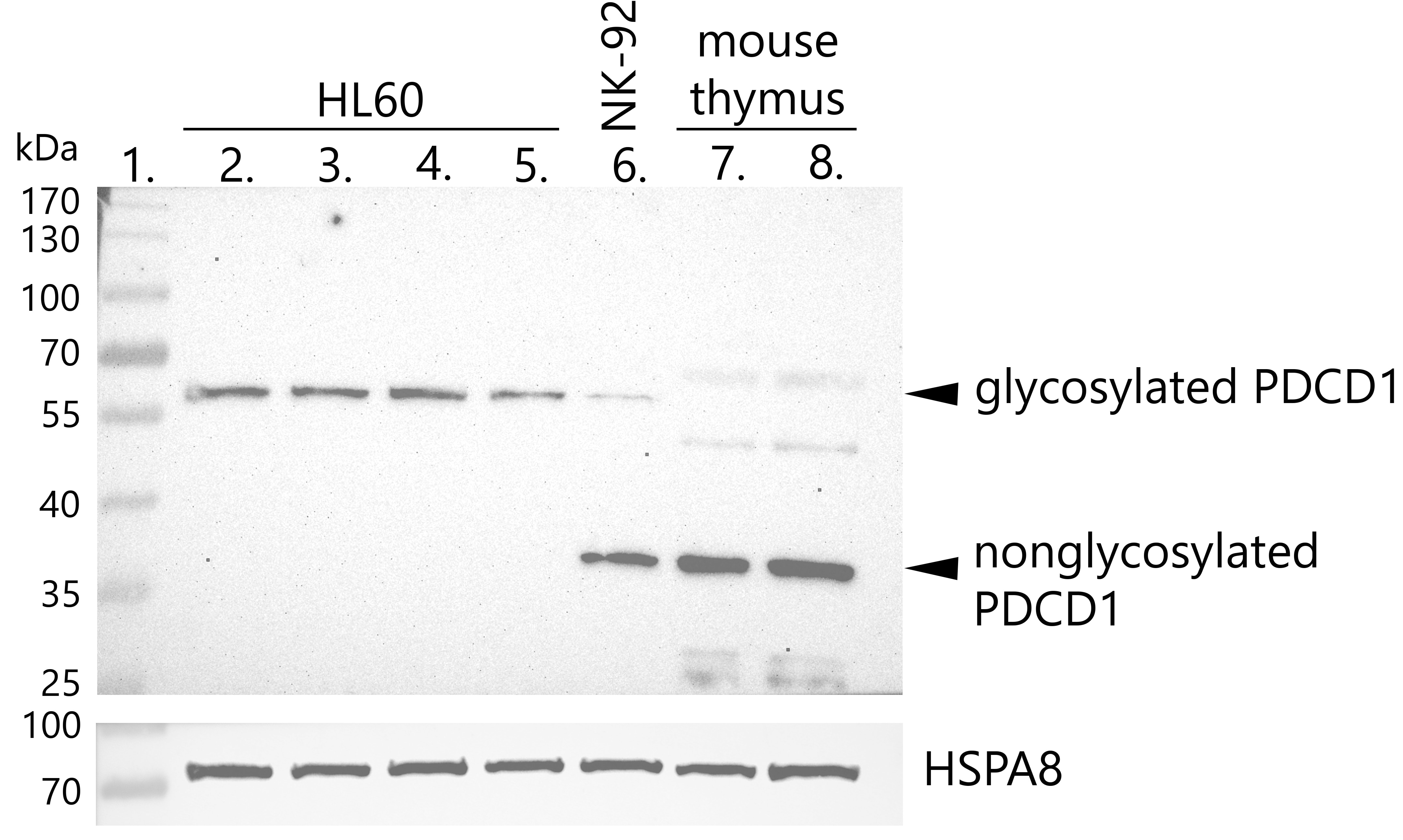 |
FH Macarena Lucia (Verified Customer) (10-17-2022) | clear band
|
FH Mona (Verified Customer) (10-17-2021) | Staining of paraffin-embedded lung tissue from hamster. Antigen retrieval was performed with Tris-EDTA (pH 9)
|
